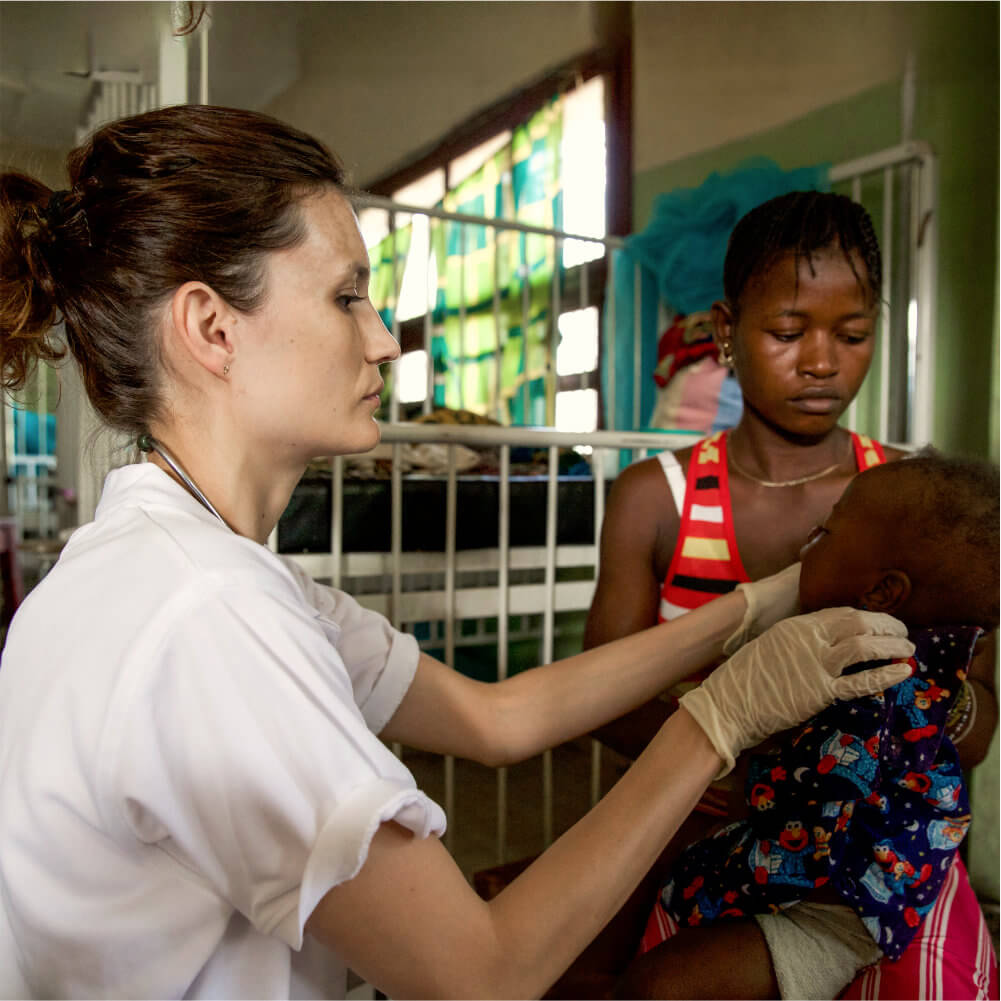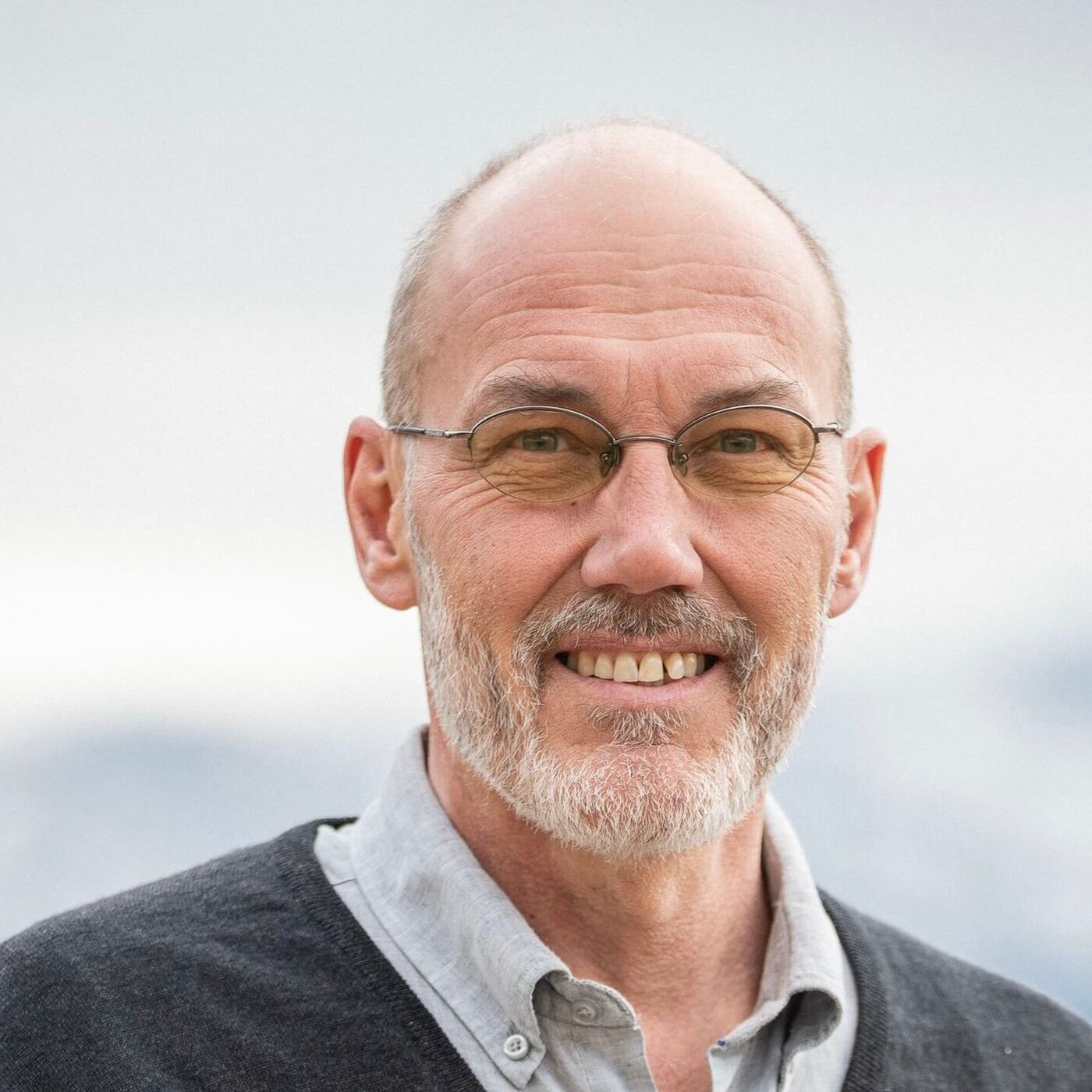



Why a testament makes sense
With a will, you decide for yourself what happens to your inheritance and how you leave your assets. It is about implementing your last will and testament according to your wishes.
Without a will, the legal succession applies. This means that spouses and registered partners, children or distant relatives inherit - regardless of how close you are to them. A testament creates clarity and avoids potential disputes.
More and more people are deciding to leave an inheritance or a legacy in favour of a charitable organisation.
In your will, you have a great deal of creative freedom and make an allowance to the people and/or organisations that are close to your heart. More and more people are deciding to include an organisation in their will - because they want to pass on their values and create something lasting or give something back to society.
With a donation in your will, you ensure that your estate is used in your favour and makes a difference. In this way, you can help shape the future even after your death and have a positive influence on the lives of other people.
Your options for making allowances to Swiss Doctors
By remembering Swiss Doctors in your will, you can help to sustainably improve medical care in regions where suffering and misery are part of everyday life for many people. As a charitable organisation, we are exempt from inheritance tax, which means that your donations flow directly into our projects and help people directly.
We support you with your testament and ensure that your will is carried out according to your wishes.
Inheritance or bequest
Inheritance
If you appoint Swiss Doctors as your sole heir, we will take care of the secure handling of your estate, i.e. the realisation of your last wish. This includes, for example, the dissolution of your household or the fulfilment of the bequests to relatives or friends specified in the will.
Contact us without obligation if you would like to appoint us as your heir. We are happy to discuss your ideas, wishes and heartfelt concerns in confidence in a personal meeting.
Bequest (legacy)
If you would like to support Swiss Doctors with a certain part of your assets, a bequest (legacy) is the best way. A bequest, for example, can be a specific part of your bank assets or a specific item of value.
With this form of bequest, you appoint a sole heir and one or more legatees, whereby your heir is legally obliged to settle your estate.
Donate or endow
Donate
Testamentary donations are a good way to help people in our project regions once and directly. By law, donations must be spent promptly.
Endow
Endowments, on the other hand, are intended for the long term. If you donate your estate to a Swiss Doctors foundation, it remains in the foundation's capital and is therefore invested for the long term. Only the interest earned flows into our projects. In this way, you permanently increase the income and help us with the foundation's work over many years.
We support you with your last will and testament
With our non-binding advice on all aspects of your will, we provide you with answers to all your questions and work with you to ensure that your last wishes are honoured with your will. Contact us without obligation to discuss your wishes in confidence.

Do you have any questions?
Dr. med. Christoph Niederberger will be happy to help you.
Questions and answers about the last will
When does a will make sense?
A will gives you the opportunity to determine exactly what should happen to your estate. A will is particularly useful if you want to remember not only your family, but also people or organisations you love, if you want to distribute your items in a particular way or consider other individual wishes.
If there is no will, the order of succession stipulated in the Swiss Civil Code applies: according to this, only blood relatives, spouses (or registered partners) and adopted children inherit. If you are not married and have no relatives, your assets will go to the State. This also applies if your relatives cannot be traced.
What do I need to bear in mind when creating a will?
In principle, you have a great deal of freedom drafting your will, but it is important that you formulate your last wishes precisely and comply with the required form of a will.
Spouses and registered partners, children (alternatively grandchildren) and parents (if there are no children) are also entitled to a compulsory portion, i.e. a minimum share of the estate.
Please also note: If you have already made a joint will or concluded an inheritance contract, this will have a binding effect and you will no longer be free to make a will. In this case, it makes sense to seek legal advice. Talk to us, we will support you.
Can I write a test item myself or do I need professional help?
You can write a ‘simple’ testament yourself. The more complex your ideas and wishes are, the more advisable it is to seek professional help, to make the will legally secure. We will be happy to help you find a notary or lawyer specialising in inheritance law.
Can I cancel my testament?
Yes, of course you can change your previous testament as a whole or parts of it. In this case, please also follow all formal requirements.
Questions and answers on inheritance and legacy
What is a testamentary or will donation?
A testamentary or will donation is an opportunity to remember a charitable organisation in your will and donate your estate - or part of it - to a good cause.
What is the difference between a legacy and an inheritance?
‘Inheritance’ and “legacy” are often used synonymously, although the two forms of donation have fundamental differences:
- Inheritance: If you include a person or organisation in your will as an heir, they are responsible for settling your estate. The person or organisation must therefore also take care of liabilities or the dissolution of the household and fulfil bequests that are regulated in the will. An inheritance is also referred to as ‘sole heir’ or ‘co-heir’. ‘Sole heir’ means that you grant the person or organisation the entire estate. ‘Co-heir’ means that you appoint several heirs (community of heirs) and determine in your will which heir receives which share. A community of heirs depends on unity and is therefore prone to disputes. It is therefore advisable to appoint a sole heir and several legatees if you wish to include several heirs in your will.
- Legacy (bequest): A legacy is a specific part of the inheritance, for example a certain amount of money or individual items of value. Legatees can be persons and/or organisations. In contrast to heirs, they have no obligations. They are therefore not liable for the handling of the estate and do not have to settle any liabilities.
How can I bequeath to Swiss Doctors?
You can leave us a legacy in your will or donate a certain amount of money, property or assets in the form of a legacy. We use such a testamentary donation directly for our projects. This means that your legacy donation directly benefits local people and provides one-time help.
You also have the option of donating your estate to the Swiss Doctors Foundation. In this way, your legacy is long-lasting, as only the income from the foundation's capital is used to support the project work.
How high is the inheritance tax for a testamentary donation?
Inheritance tax is generally payable on the acquisition of assets upon death. In Switzerland organisations with a church, charitable or benevolent purpose are exempt from this tax liability. This means that the maximum amount of your testamentary donation to Swiss Doctors will benefit disadvantaged people.
Why should I leave or bequeath something to Swiss Doctors?
With a bequest in favour of Swiss Doctors, you help us to give disadvantaged people access to medical care. Your donation will give local people the chance to live in dignity, because in addition to donating their time, our doctors also need financial resources to fund their ongoing project work.
Can I also bequeath property and valuables?
Yes, we are happy to receive donations of any kind, including valuables and property. We have them valued by experts and sell them. The proceeds then flow directly into our aid projects.
How do I make a bequest to Swiss Doctors?
You can leave a legacy to Swiss Doctors or designate the organisation as a co-heir or sole heir. Please contact us if you have any questions. On request, we can arrange a consultation with specialised lawyers.
Can I also consider several charitable organisations?
Yes, it is also possible to include various charitable organisations. In this case it is best to include one organisation (or a few organisations) as an heir and leave a legacy to the other organisations in order to simplify the settlement of the estate.
Can I decide which project my legacy will be used for?
Yes, you can make a bequest or legacy for a project or a project component and thus decide exactly how you would like to support Swiss Doctors with your testamentary donation. We will be happy to discuss your options with you and provide you with non-binding advice.
How does the handling of the estate by Swiss Doctors work?
If you appoint Swiss Doctors as your heir, we will also handle the administration of your estate. This means that we dissolve your household, take care of your banking affairs and fulfil your bequests.
Contact us in advance to discuss your wishes and ideas.





